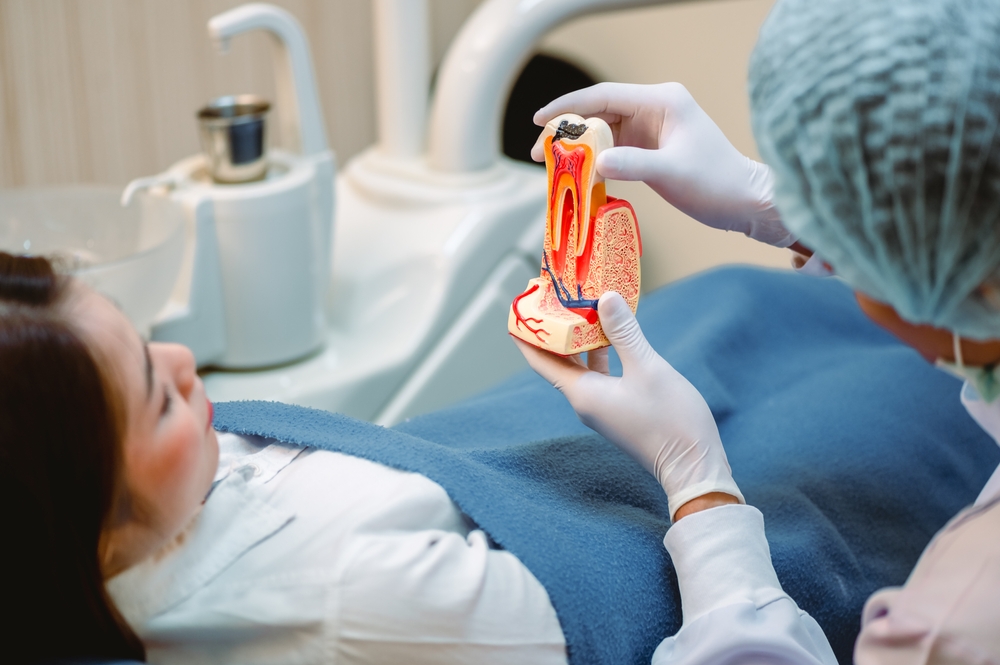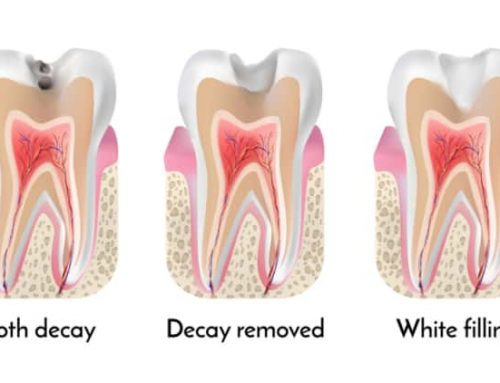Every year, countless individuals undergo root canal procedures, making it one of the most common dental treatments. Its primary purpose is to save a tooth that’s been compromised by damage or infection. Yet, despite its routine nature, the root canal remains ensnared in myths. One of the most prevailing myths is the purported extreme pain of the procedure. But is a root canal really as painful as popular culture makes it out to be? Let’s delve deeper into what a root canal entails and demystify its associated discomfort.
What is a Root Canal Procedure?
A tooth consists of multiple layers – the outermost enamel, the underlying dentin, and the innermost pulp. The pulp contains nerves, blood vessels, and connective tissue, and plays a role in tooth growth. However, when this pulp gets infected or severely decayed, it can result in pain, swelling, and even abscess formation.
Enter the root canal procedure.
A root canal, contrary to some misconceptions, is not a painful punishment but a relief-providing treatment. The procedure begins with the dentist accessing the pulp chamber of the tooth. The infected or dead pulp is then meticulously removed, and the chamber is cleaned thoroughly to ensure no remnants of bacteria or infected tissue are left behind. Once cleaned, the chamber is filled and sealed with a biocompatible material to prevent future infections. Finally, the tooth often receives a crown or filling to restore its structural integrity.
By addressing the root cause of the pain, which is the infected or inflamed pulp, the root canal procedure alleviates pain and saves the natural tooth, preventing the need for tooth extraction.
Is Pain Normal After a Root Canal?
It’s a widespread belief that root canals are synonymous with pain, but this belief is often rooted in outdated notions or anecdotal tales. In reality, with advancements in dental techniques and the effectiveness of modern anesthesia, patients often find that the pain they felt before the procedure, due to infection or inflammation, is significantly more intense than any discomfort associated with the root canal itself.
Let’s clarify something: The root canal procedure is designed to eliminate pain, not cause it. The very essence of this treatment is to remove the infected or inflamed pulp, which is the main culprit behind severe toothache. So, while there might be some post-procedure discomfort, it’s essential to distinguish this from the pain that necessitated the procedure in the first place.

What Causes Post-Procedure Pain or Discomfort?
Even though the primary pain source (the infected pulp) has been addressed, why do some people experience discomfort after the procedure? Here are a few reasons:
- Tissue Inflammation: The area surrounding the treated tooth, especially if there was an existing abscess or significant infection, might still be inflamed post-procedure. This inflammation can cause tenderness or discomfort.
- Debris: During the procedure, minute fragments or debris might remain and cause minor inflammation. However, these usually clear up on their own within a few days as the body naturally heals.
- Filling or Crown Issues: Sometimes, if the filling or crown placed after the root canal is slightly higher than the surrounding teeth, it can cause discomfort, especially when biting down.
How to Alleviate Pain or Discomfort After a Root Canal
Experiencing some level of discomfort post-procedure is natural, but there are ways to manage and alleviate this discomfort:
- Pain Relievers: Over-the-counter pain medications, especially non-steroidal anti-inflammatory drugs like ibuprofen, can be taken as recommended to manage pain.
- Oral Hygiene: While the treated area might be sensitive, it’s crucial to continue with gentle brushing. Rinsing your mouth with warm salt water can also soothe the area and help keep it clean, deterring potential infections.
- Cold Compress: Applying a cold compress to the external area of the treated tooth can help reduce swelling and provide relief. It’s best used intermittently: 15 minutes on, then 15 minutes off.
- Dietary Precautions: After a root canal, sticking to soft foods and avoiding very hot or cold items can be beneficial. Crunchy or hard foods can exert pressure on the treated tooth, so it’s advisable to avoid these for a few days post-procedure.
When Should You Be Concerned About the Pain?
While some discomfort after a root canal is normal, there are signs and symptoms that may indicate potential complications or underlying issues:
- Persistent Pain: It’s normal to experience some tenderness after the procedure, but if you’re still in significant pain several days later, it might be a cause for concern.
- Swelling: While some minor swelling is expected, if it doesn’t subside or becomes pronounced—especially if it spreads to the face—it should be addressed immediately.
- Allergic Reactions: Allergic reactions to materials used during the procedure are rare but possible. Symptoms like rashes, itching, or elevated temperatures require prompt attention.
- Discharge: The presence of pus or any other type of discharge from the area around the treated tooth might indicate a reinfection or a complication from the procedure, like a failed root canal.
Should you experience any of these symptoms, it’s crucial to reach out to your dentist immediately for evaluation and possible intervention.
Why Choose Pickett Family Dental for Your Root Canal?
When it comes to dental procedures, especially something as significant as a root canal, you want to be in the best hands. Here’s why Pickett Family Dental should be your first choice:
- Pain Management Expertise: Dental procedures shouldn’t be synonymous with discomfort. At Pickett Family Dental, we employ the latest in anesthesia techniques, ensuring that our patients experience minimal discomfort during their procedures.
- Excellence in Aftercare: A procedure doesn’t end when you leave the dentist’s chair. We pride ourselves on the comprehensive post-procedure care advice we provide. Coupled with regular check-ups, we ensure a smooth recovery for every patient.
- Experienced Dental Team: Root canals are routine for our skilled team. With their vast experience and expertise, you can trust that you’re receiving top-tier care. We are constantly refining our approach, blending tried-and-true methods with new innovations, to make the procedure efficient and comfortable.
- Dedicated Post-Procedure Support: Concerns don’t stick to business hours. Recognizing that patients might have questions or face discomforts after the procedure, we make ourselves available, emphasizing that our patients’ peace of mind is paramount.
Dental health, like many aspects of our well-being, thrives on timely intervention. Delaying a needed root canal can not only aggravate pain but also risk losing the tooth entirely, leading to more complex and invasive procedures down the line.
In the contemporary dental landscape, root canals stand out as a testament to how far we’ve come. With state-of-the-art equipment, refined techniques, and the expertise of seasoned professionals, the root canal experience today is leagues ahead of its painful reputation. The emphasis is on comfort, efficiency, and ensuring the health of the tooth, making it a procedure that’s not to be dreaded but appreciated for its tooth-saving capabilities.
Your Path to Dental Well-being Awaits
Prioritizing your oral health is an investment in your overall well-being. Should you find yourself grappling with dental discomfort or pondering the need for a root canal, don’t hesitate. Pickett Family Dental is here, offering consultations, expert advice, and unmatched dental care. Let us be your partners in ensuring a radiant, pain-free smile for years to come.



